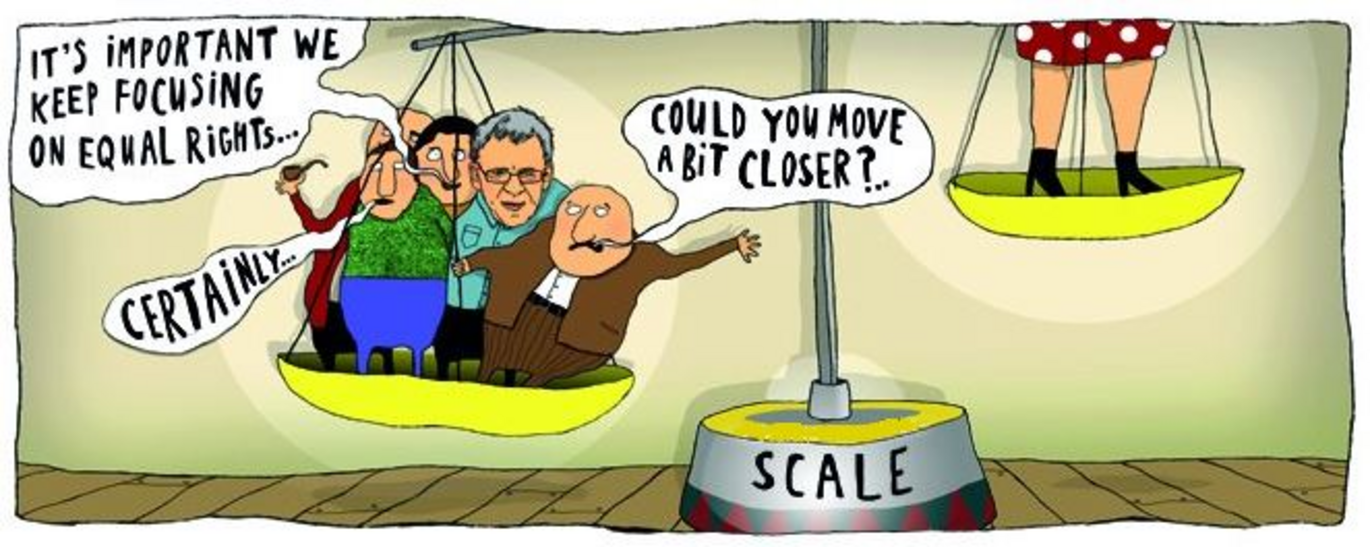Five new research projects aim to create more gender equality at AU
AU has allocated DKK 650,000 to research aimed at ensuring a more equal gender balance among the university’s academic staff.

Four out of five full professors at AU are men, despite the fact that there are equal numbers of male and female PhD students at the university, and the number of female researchers at AU is lower than the EU average and “considerably lower than” in the other Nordic countries.
To address this imbalance, AU adopted an action plan in 2016. The plan set out a range of initiatives aimed at ensuring that men and women have equal opportunities for employment and professional development in research positions.
As one initiative in the action plan, the Committee for Research and External Cooperation has allocated a total of DKK 650,000 to five different projects which will explore ways of reducing gender bias at AU.
Including the female perspective
The project ‘Mapping the female perspective’ will examine how female researchers at AU perceive themselves in research environments which are dominated by men. And what motivates women who abandon their research careers. A central concept in the project is ‘the leaky pipeline’, which refers to the fact that women are disproportionately likely to give up research careers.
“From different studies, we know that women are generally and systematically discriminated against in the world of research, for example in relation to appointments, publication and teaching evaluations,” explains principal investigator Sara Kier Praëm, a postdoc at the School of Culture and Society.
But in her own experience, women who have left or who are considering leaving academia do not point to structural factors as reasons for their decision.
“In fact, a lot of the women I’ve talked to are blissfully unaware of the research on this issue,” she says.
This is why the focus of the project to understand what it is like to be a woman in research groups at AU, through interviewing both women who have chosen to pursue a research career and women who have chosen other paths. The aim of the project is to identify the factors women themselves consider relevant to their choice.
“We believe that both consciousness of the mechanisms of discrimination and the female perspective are important in relation to developing strategies aimed at retaining women in research.”
The plan is for the project to inform concrete proposals on how to improve women’s opportunities to purse a career in research.
Facts
- The five projects fall under AU’s action plan for more women in research.
- A total of DKK 650,000 has been awarded to the projects.
- The titles of the five projects:
- ’Mapping the female perspective’
- ’Gender and Networks in Early-career Academic Advancements’
- ’Building platforms for women and girls in science’
- ’Gender and Representation in Research’
- ’The Gender Bias in Research: C3 - Course, Coaching and Conference’
- Read more about the projects
Network, network, network
With the project ‘Gender and networks in early-career academic advancements,’ researchers will explore the role played by networks in career opportunities for men and women at Aarhus University.
“Some people believe that Denmark is such an equal society that everyone participates in social and professional contexts on the labour market on an equal footing. We take a critical approach to this assumption in this project,” explains Eva Høgh Utoft, a PhD student involved in the project.
“We hope that by providing the scientific evidence, the study will be an eye-opener for those who still fail to appreciate that in reality, som groups are still facing exclusion,” she says.
The project’s researchers believe that this is necessary in order to produce a concrete and effective response to the problem.
The project will begin this week with pilot studies in which focus groups will be asked to contribute input to a large questionnaire study. Utoft hopes that they will be able to send the questionnaire out to early career researchers before the summer holiday. After the holiday, the plan is to follow up on the survey with qualitative interviews and focus groups.
Men may be perceived as better suited
The other three projects which have received funding are ‘Building platforms for women and girls in science’, ’Gender and representation in research’ and ’The gender bias in research: C3 - course, coaching and conference’.
The ’Building platforms for women and girls in science’ project also focuses on the importance of network. The project’s researchers will work to help women in research expand their networks, for example through a variety of events. The principal investigator of the project is Ashley Pearcy, a visiting scientist at the Department of Bioscience.
The project ‘Gender and representation in research’ will investigate whether male researchers are perceived as better suited to an academic career than female researchers, and the correlation between gender stereotypes and professional roles.
A course in gender bias
The last project which has been awarded funding will make a course in overcoming gender bias available to female researchers, among other objectives. At the course, you can learn how to lead yourself through an academic career by strengthening your self-awareness, self-confidence and self-efficacy. The researchers hope that awareness of the structural problems can be raised among the course participants and that strategies for how to tackle or change the structural problems can be discussed.
A conference on gender bias will also be held in connection with the project. The grant was awarded to the AU Junior Researcher Association, which works to promote the interests of early career researchers. The project will be headed by Alejandra Zaragoza, who is a senior researcher at the Department of Psychology and Behavioural Sciences.

